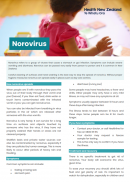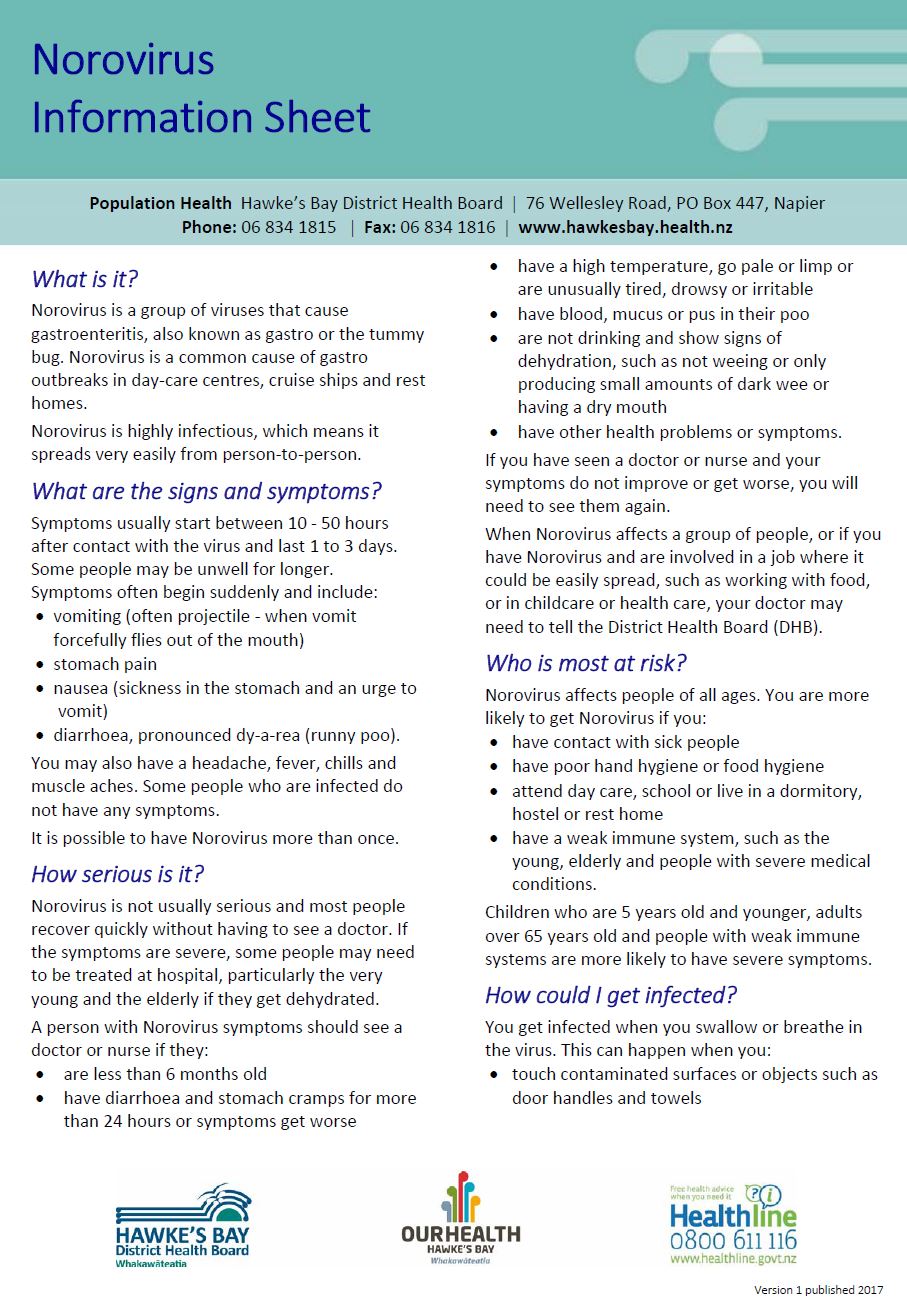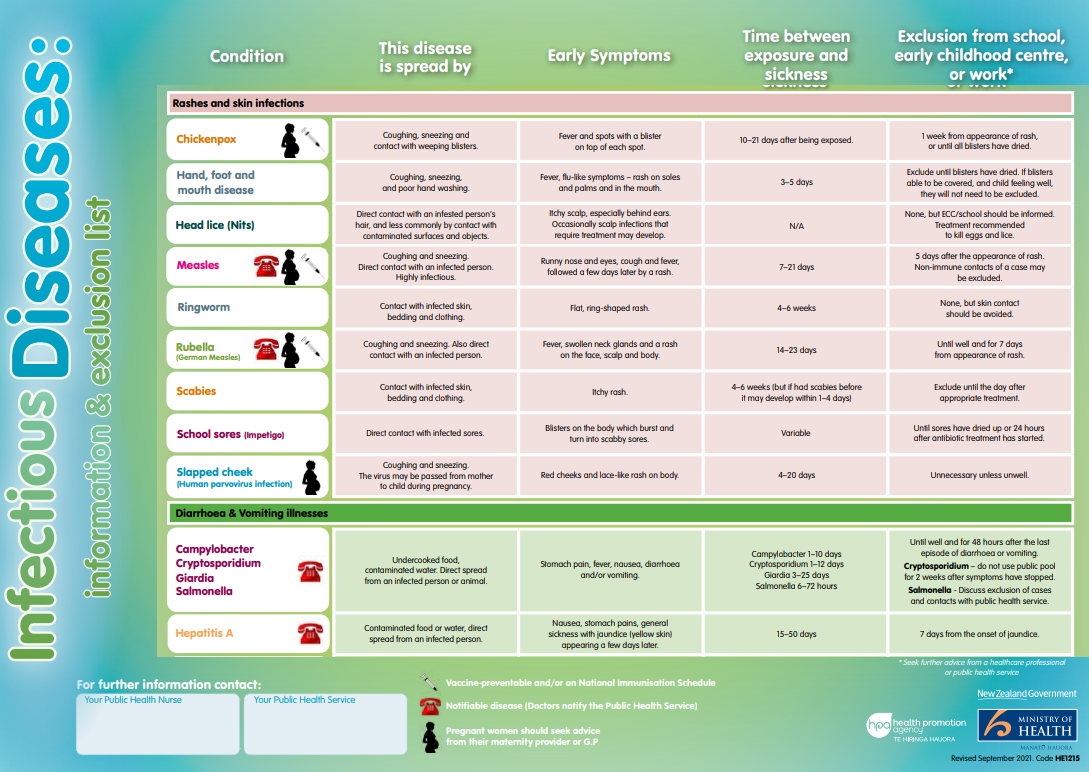There is no specific treatment or vaccination for norovirus. Norovirus is not treated with antibiotics because it is caused by a virus, not a bacteria.
Most people with norovirus can be looked after at home and do not need to see a doctor. Rest and drink plenty of water to prevent dehydration. Do not take medicine to stop vomiting or diarrhoea as this will stop your body getting rid of the virus. However, if you see a doctor they may give you medicine to stop vomiting or diarrhoea if they are worried you are getting dehydrated.
Avoid spreading it to others
If you are infected with norovirus, you can avoid spreading it to others by doing these things:
- Regularly washing and drying your hands thoroughly.
- Opening doors and windows to let fresh air into the room after you have been sick (vomited).
- Use household chlorine bleach mixed with water to disinfect areas where vomit and poo have spilled, and clean surfaces and items you use often.
- If you need to visit your doctor tell the receptionist or nurse about your symptoms before you go so that the practice can decide if infection control measures need to be put in place to stop other people getting sick.
- Avoid contact with children, adults over 65 years old and people with weak immune systems until you have had no symptoms for 48 hours (2 days).
- Do not prepare food for others until you have had no symptoms for 2 days.
- Do not go swimming in pools until you have had no symptoms for 2 weeks.









